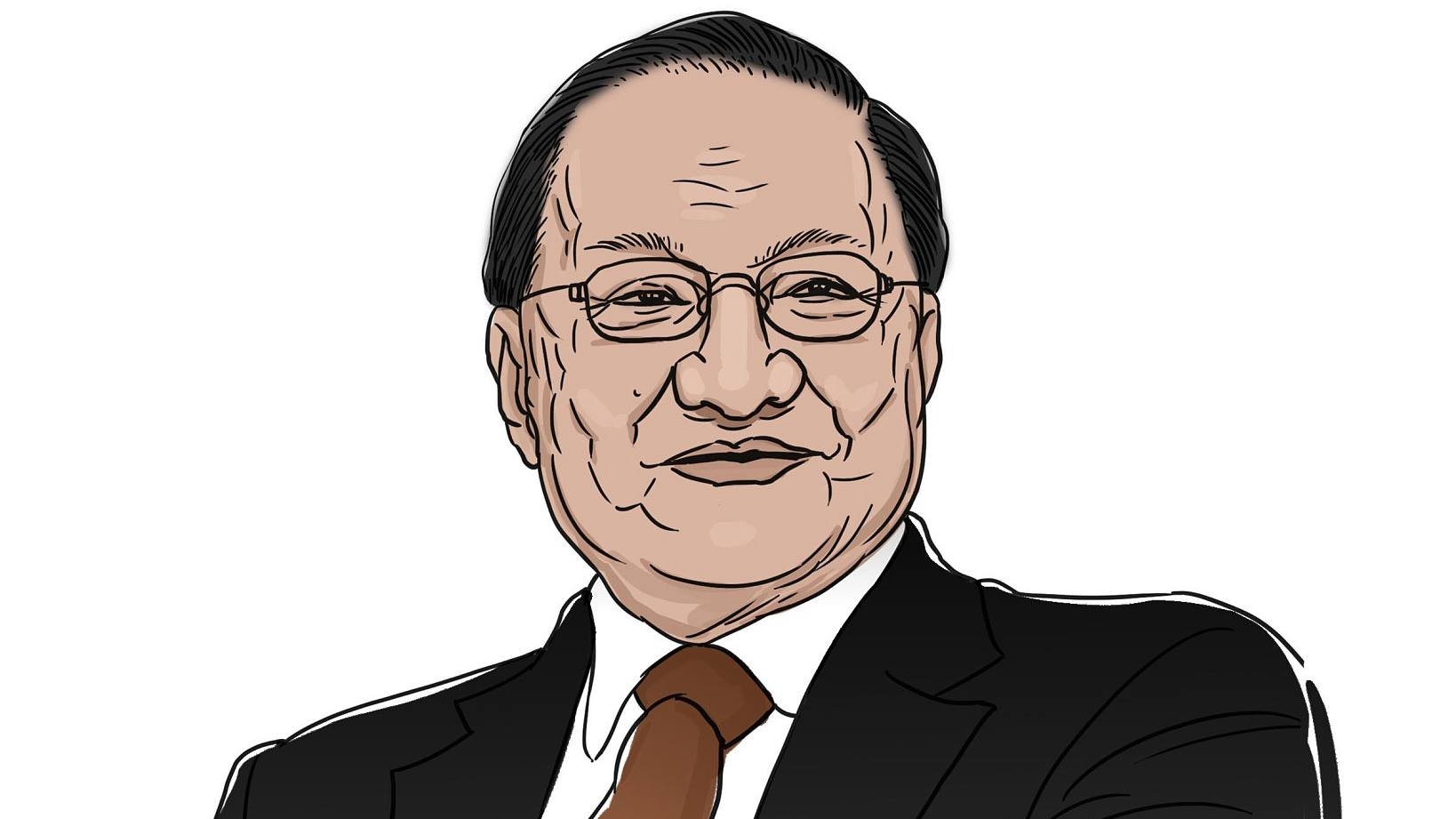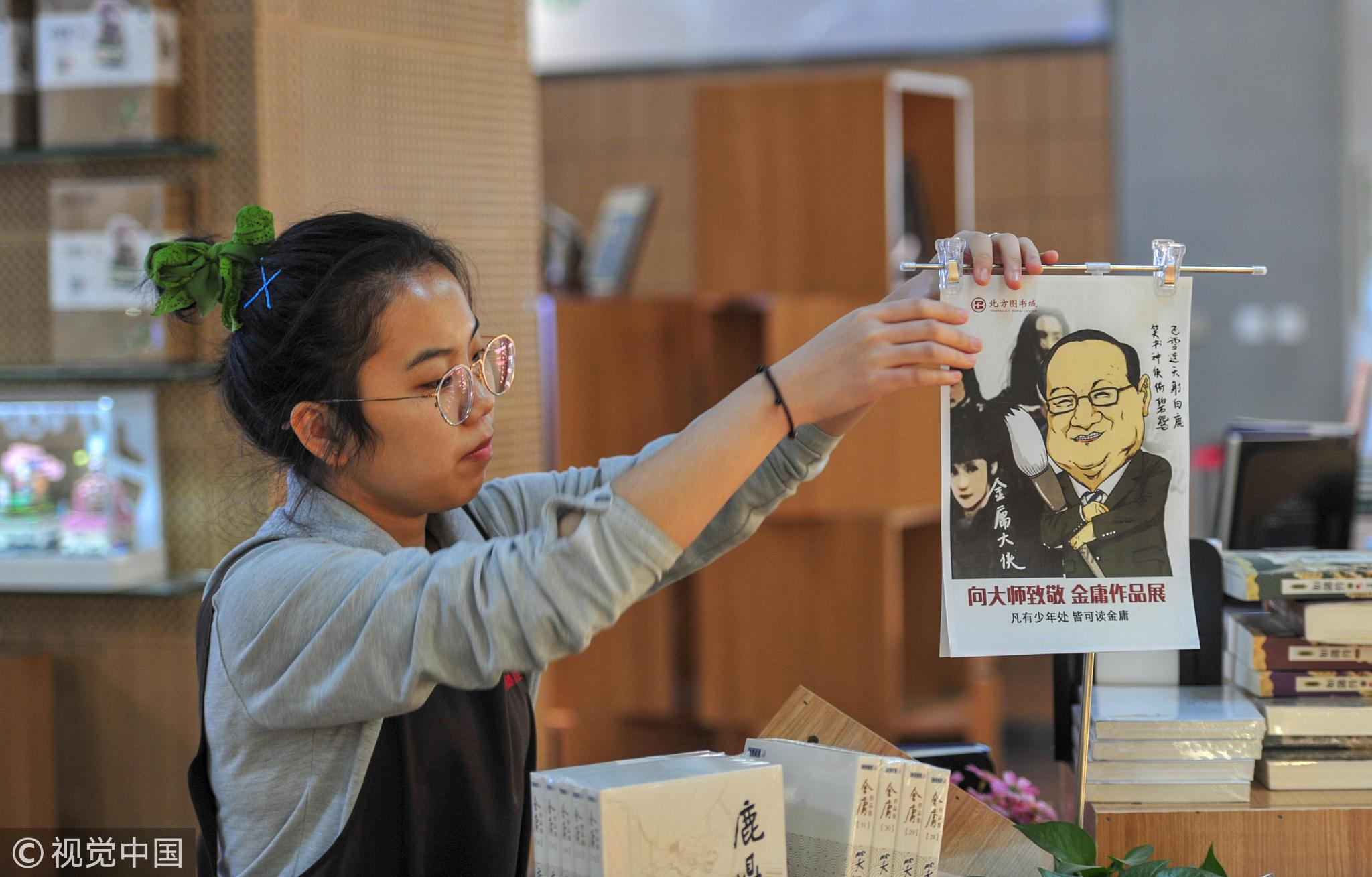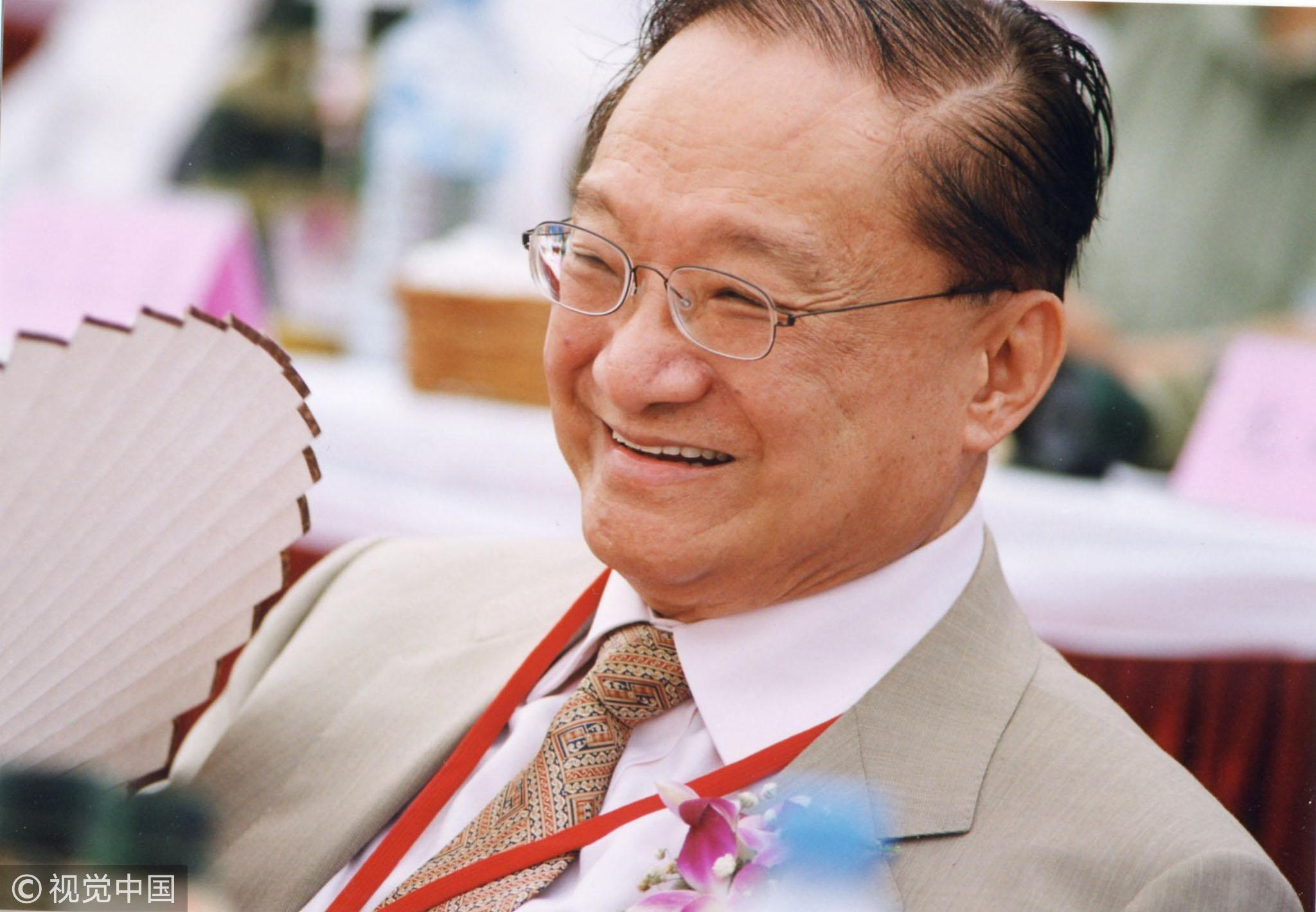
Opinions
23:44, 01-Nov-2018
Opinion: Jin Yong creates his own era in Chinese literature
Updated
23:24, 04-Nov-2018
Zhuang Yong

Editor's note: Zhuang Yong is the secretary general of the Internet Literature Committee of China Literature and Art Critics Association. The article reflects the author's opinion, and not necessarily the views of CGTN.
Different time periods in history have their own distinctive literatures. The works of the Chinese wuxia (martial arts) novelist, Jin Yong, are a big part of Chinese literature at our present time.
Jin is not only one of the greatest writers of Hong Kong new wuxia novels and a mentor of the contemporary Chinese literature, but he has also, through his works, set a good example of how we can tell China's stories in the 21st Century.
His works have connected Chinese literature of the past, the present, and the future. They have struck a chord with the Chinese people both at home and abroad. Moreover, they connect the past and the future. Readers can gain insights into China and the world.
Jin has created his own era in the history of Chinese literature, and I have three reasons to prove it.
Firstly, Jin Yong passes on the traditions of Chinese literature in his works, of which, "the fate of the nation" is a big theme.
In modern and contemporary China, literary traditions have not been perfectly preserved as many people lacked confidence in their own culture.

A staff member at a bookshop puts up a poster about Jin Yong's books exhibition at Shenyang, Liaoning Province, October 31, 2018. /VCG Photo
A staff member at a bookshop puts up a poster about Jin Yong's books exhibition at Shenyang, Liaoning Province, October 31, 2018. /VCG Photo
Many of Chinese literary traditions have been lost due to the influence of the Western culture. How to transform and develop Chinese culture in a creative way is a question we need to think about in today's China.
Jin Yong has given a good answer to that question as he carried on thousands of years of Chinese literary traditions and linked literature with the national development.
By reading Jin's works, one can find that one of the core values of Chinese people is national unity.
Secondly, the messages of his novels – for example, "the greatest swordsmen are those who think for their country and people" – have shaped many Chinese people's values.
"Swordsmen" in wuxia novels are people adept in martial arts. Before Jin, they would destroy the old social orders, but are incapable of building new ones.
Jin has deconstructed the old definition of the swordsman and given it a new one: hero who fight for his country and people. Swordsmen have therefore changed from the destroyers of rules to creators of them, and the people with personal pursuits to those who are able to inspire and mobilize other people to work towards a common goal.
For example, Guo Jing, a well-known swordsman in his works, has called on others to fight for their country and people, which shows the moral aspect of the new wuxia. As a result, the new wuxia started to have deeper meanings and become the type of literature that tells China's stories and that of the Chinese people.
Thirdly, Jin Yong's works serve as a bridge between traditional Chinese literature and Chinese modern Internet literature. Inspired by Jin Yong, Chinese wuxia novels evolved from fan fiction such as "Inside and Outside the Classroom," which was written by Jiang Nan in 2001, to the period from 2003 to 2005 in which Chinese writers sought to find a new way to approach the wuxia novels, and began incorporating it into other genres such as fantasy, historical and science fiction.

Jin Yong smiles at an event in 2001. /VCG Photo
Jin Yong smiles at an event in 2001. /VCG Photo
As a result, martial arts novels have not only survived but also thrived. For example, Fenghuoxizhuhou and Maoni are two of my favorite online writers. Their works are the embodiment of Jin Yong's core values: martial arts and justice.
"When will we usher in a post-Jin Yong era with regards to literature?" The question has puzzled us for several years. This potential new era, however, has been postponed, which poses a serious question concerning not only wuxia novels but also the whole of the Chinese literature: Can we ever surpass Jin Yong's achievements?
This question has not yet been answered.
From my adolescent years to when I graduated from university, the works of Jin Yong and Shakespeare and Marcel Proust's "A la Recherche du Temps Perdu" are the books that had the most significant impact on me.
I haven't read Jin Yong's books since my graduation. It was when I heard that he passed away that I realized how his novels have influenced me in terms of my values and my attitudes on learning and studying. I realized then how it brought me to where I am today.
Even by a simple look at the titles of my two books – "The Creation of Evaluation System on Chinese Internet Literature" and "Top-level Design to Basic-level and Study on the Strategy of Chinese Internet Literature and Arts", one can find that rather than following a traditional academic approach, my writing style bears a resemblance to that of Jin Yong's novels.
I have never met Jin Yong in person, but I feel grateful I have met him in his novels.
(If you want to contribute and have specific expertise, please contact us at opinions@cgtn.com.)

SITEMAP
Copyright © 2018 CGTN. Beijing ICP prepared NO.16065310-3
Copyright © 2018 CGTN. Beijing ICP prepared NO.16065310-3